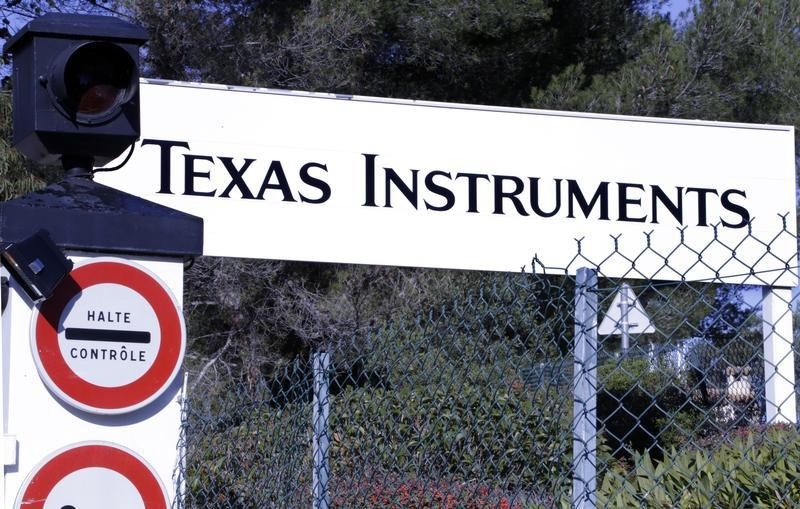Veeco launches Lumina+ MOCVD system, receives Rocket Lab order
On Thursday, JPMorgan analysts adjusted their stance on Texas Instruments stock (NASDAQ:TXN), lowering the price target from $230.00 to $195.00 while maintaining an Overweight rating. The semiconductor giant, currently trading at $152.15 with a market capitalization of $138.44 billion, has demonstrated remarkable dividend consistency, having maintained payments for 55 consecutive years according to InvestingPro data. The revision follows Texas Instruments’ release of their March quarter results, which surpassed expectations in terms of revenue, margins, and earnings. The company also provided a strong outlook for the second quarter, attributing it to a synchronized recovery across various end markets, with industrials showing notable growth across sub-segments and geographies.
Despite a seasonal dip in personal electronics, Texas Instruments experienced quarter-over-quarter growth in all other end markets. The positive trend for the second quarter is attributed to cyclical recovery trends, with no significant customer demand pull forward observed at this time. With a robust gross margin of 58.14% and annual revenue of $15.64 billion, the company maintains strong fundamentals. InvestingPro analysis reveals over 10 additional key insights about TXN’s performance and potential, available to subscribers. JPMorgan analysts noted that the company has yet to feel the effects of tariffs due to their short lead times, but they anticipate that tariff and trade-related issues could dampen the outlook for the second half of the year, potentially leading to negative earnings revisions.
JPMorgan’s analysis highlighted that while Texas Instruments is coming out of a semiconductor down-cycle with low customer inventory levels, which may soften potential downside risks compared to previous cycles, there is still caution due to the anticipated weaker macro demand environment in the latter half of the year. The analysts also mentioned that Texas Instruments ships 50% of its revenue mix to China, and while the company is confident in mitigating the impacts of China tariffs with its non-U.S. wafer fabs and external foundry supply, addressing the full scope of these challenges may take time.
The gross margin for the March quarter was reported to be better than expected due to higher revenues, but the analysts expect the gross margin profile to remain relatively muted over the next several quarters due to weaker end demand and increased depreciation expenses. According to InvestingPro’s comprehensive analysis, TXN currently maintains a FAIR Financial Health Score of 2.21, with particularly strong ratings in profit and cash flow metrics. The stock is currently trading slightly below its Fair Value, presenting an interesting opportunity for value investors. For detailed insights and complete financial analysis, access the full Pro Research Report, available for over 1,400 US stocks. Inventory days are currently at the high end of the company’s target level, indicating a preparedness for a potential decline in demand.
In light of these considerations, JPMorgan has revised their estimates for the calendar year 2025 and initiated estimates for 2026. The new December 2026 price target of $195 reflects lowered earnings expectations and a reduced earnings multiple. Despite the price target reduction, JPMorgan continues to endorse an Overweight rating on Texas Instruments stock.
In other recent news, Texas Instruments reported impressive earnings for Q1 2025, with earnings per share (EPS) reaching $1.28, surpassing the forecast of $1.06. The company’s revenue also exceeded expectations, coming in at $4.1 billion compared to the anticipated $3.91 billion. This strong performance was supported by a 13% increase in analog revenue and a 23% rise in other segments. Looking ahead, Texas Instruments has provided positive guidance for Q2 2025, with projected revenue between $4.17 billion and $4.53 billion and EPS expected to range from $1.21 to $1.47. Despite these encouraging figures, the company remains cautious due to ongoing geopolitical uncertainties that could impact operations and market access. Furthermore, Texas Instruments continues to navigate challenges such as tariffs and supply chain dynamics. The company maintains a strong competitive position, particularly in the China market, amidst these challenges.
This article was generated with the support of AI and reviewed by an editor. For more information see our T&C.
